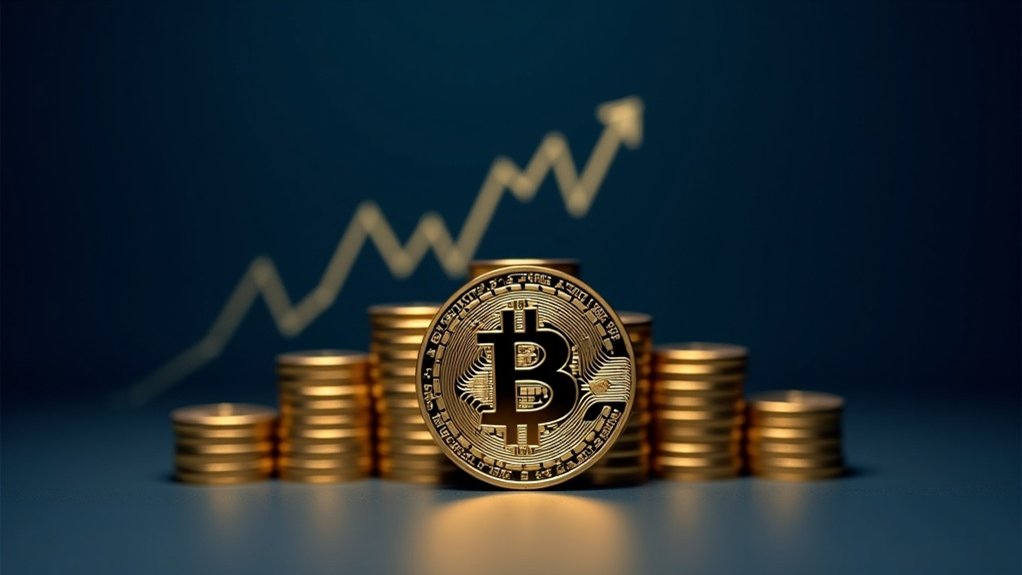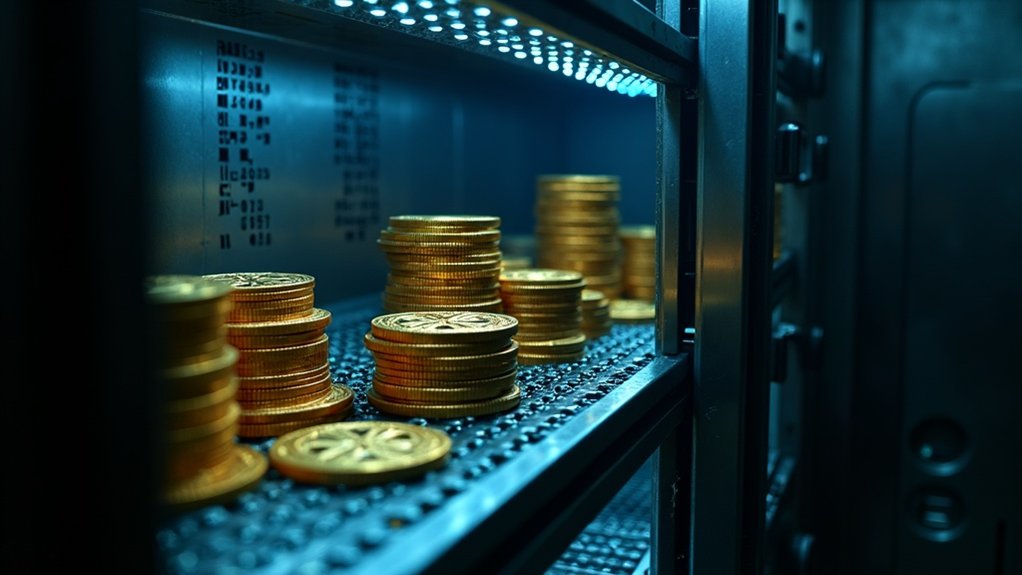A DEX is a decentralized cryptocurrency exchange that eliminates middlemen through blockchain technology. Users keep their private keys and maintain full control of their funds—no corporate overlords necessary. DEXs operate via smart contracts that automate trading, either through AMMs like Uniswap or order book systems like dYdX. They offer enhanced privacy with no KYC requirements and permissionless global access. But beware: thin liquidity, complex interfaces, and smart contract vulnerabilities are real risks. The price of financial sovereignty isn’t always cheap.
A DEX, or decentralized exchange, flips the traditional crypto trading model on its head.
A DEX upends crypto’s old guard. No middlemen. No gatekeepers. Just code connecting traders in the digital wild.
No middlemen.
No corporate overlords.
Just you, your crypto, and some clever code facilitating trades.
These peer-to-peer marketplaces operate without intermediaries, letting users trade cryptocurrencies while maintaining complete control of their private keys and funds.
That’s right – your money stays your money.
The magic happens through blockchain-based smart contracts.
These self-executing agreements automate the entire exchange process without human oversight.
They’re like robot traders that never sleep, never cheat, and never ask for your personal information.
Pretty neat, huh?
DEXs come in two main flavors: Automated Market Makers (AMMs) like Uniswap and order book-based systems similar to dYdX.
AMMs use liquidity pools where traders swap against reserves supplied by other users.
Order books match buyers with sellers in real-time.
Both operate on blockchains like Ethereum and Solana, though with different approaches to the same problem.
DEXs like Uniswap have pioneered the AMM model for efficient ERC-20 token trading on Ethereum.
The constant product formula helps maintain balanced liquidity pools and determines token prices automatically.
The non-custodial nature of DEXs is their biggest selling point.
Your private keys never leave your possession.
No more worrying about exchanges getting hacked or running off with your coins.
Been there, done that, got the empty wallet to prove it.
Privacy freaks love DEXs.
No KYC forms.
No passport scans.
No explaining to customer service why you need access to your own money.
Just connect your wallet and trade.
This permissionless approach opens doors for global participation – anyone with internet access can join the party.
DEXs serve as a cornerstone of DeFi, enabling composable financial products that work together seamlessly.
But it’s not all rainbows and lambos.
Liquidity can be thin, leading to price slippage.
User interfaces sometimes feel like they were designed by programmers, for programmers.
And smart contract vulnerabilities?
They’re real.
One bug could drain millions faster than you can say “rug pull.”
Transaction speeds and fees depend entirely on the underlying blockchain.
When networks get congested, so do DEXs.
Still, for those seeking financial sovereignty, the trade-offs might be worth it.
Your keys, your coins, your choice.
Frequently Asked Questions
How Secure Are DEXS Compared to Centralized Exchanges?
DEXs and CEXs offer different security models. DEXs eliminate custodial risk—no one holds your coins but you.
Smart contract bugs? Still a problem. Remember that $25 million Uniswap fork heist? Ouch.
CEXs are hack magnets with your funds sitting in their vaults. Mt. Gox, anyone? But they’ve got institutional security and support teams.
The tradeoff is clear: self-custody risks versus exchange risks. Your keys, your crypto. Their keys? Well…
What Are the Tax Implications of Trading on DEXS?
Trading on DEXs creates tax headaches just like centralized platforms.
Every swap between cryptocurrencies triggers capital gains taxes—no escaping Uncle Sam’s reach.
DeFi activities like staking and liquidity provision? That’s income tax territory.
The IRS doesn’t care about your decentralization principles.
They just want their cut.
Starting 2027, even DEX front-ends must report transactions.
Crypto tax software helps track this mess, but the bottom line? The taxman always finds you. Always.
Can DEXS Be Regulated by Government Authorities?
DEXs can technically be regulated, but it’s complicated.
Government agencies like the SEC, CFTC, and FinCEN are trying, with limited success.
The decentralized nature creates enforcement headaches—no central entity to target, pseudonymous users, and cross-border operations.
Authorities have mostly gone after centralized access points instead of core protocols.
Recent legislation aims to create clearer frameworks.
Bottom line: regulation exists on paper, but practical enforcement? That’s the real challenge.
Which DEX Has the Lowest Transaction Fees?
Apex Omni takes the crown for lowest DEX fees at just 0.015% maker/0.045% taker rates. That’s seriously tiny.
dYdX follows closely with 0.02%/0.05% rates.
But here’s the kicker – blockchain matters more than the DEX itself.
Trading on Solana-based DEXs costs practically nothing in gas fees ($0.00025 per transaction).
Nano technically offers fee-free transactions, though it’s rarely used for DEXs.
Bottom line: choose platforms on cheap blockchains like Solana or Algorand for best results.
How Do DEXS Handle Customer Support Issues?
DEXs handle customer support differently than traditional exchanges.
They rely heavily on community-driven help through forums and social media.
No central help desk here.
Many offer automated tools like FAQs and chatbots for common issues.
Some employ small support teams or third-party providers, but it’s limited.
When technical problems hit, they communicate through official channels.
Important fact: transactions can’t be reversed.
Pretty tough luck if you make a mistake.









